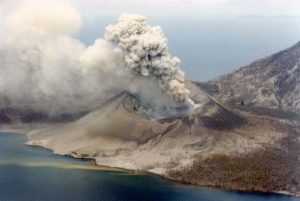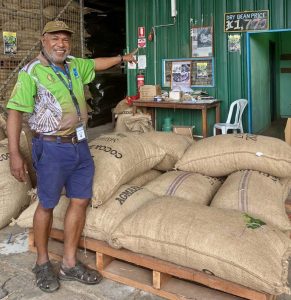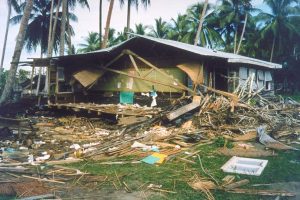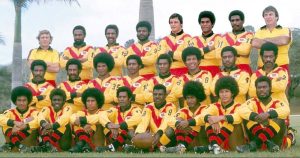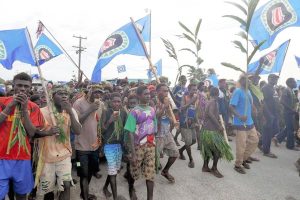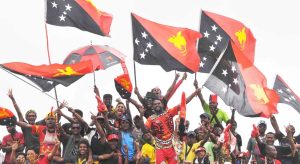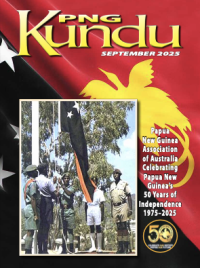PNG at 50: We Are the Children of the 1960s—a Bridge Between Worlds
We were born in the late 1960s—into a world still under the shadow of colonialism, but stirring with the promise of freedom. The Queen was on our coins. English had just arrived in our classrooms. Roads were few, yet our imaginations ran wild. Papua New Guinea was not yet a nation, but we were already its sons and daughters.
We grew up in the 1970s, as the flag of black, red, and gold was raised to the skies. We were children during independence—wide-eyed, barefoot, and full of wonder. We remember the kundu drums beating, the school choirs singing, the joy in our parents’ voices as the nation found its name.
We drank Fanta from glass bottles, bought Twisties at trade stores, and danced to music played on vinyl records, cassette tapes, and later, CDs. Life was raw, real, and full of hope.
We studied in the 1970s and ’80s, when education meant chalkboards, school uniforms and strict teachers. We memorised multiplication tables and sang hymns during assembly.
We passed notes in class, walked miles to school, and came home to gardens, laughter, and storytelling around the fire.
We came of age in the 1980s and ’90s, a time of nation-building. We fell in love, got married (or didn’t), raised families, and found jobs in a growing PNG. We saved for box cameras, took photos which were developed at the pharmacy, and sent letters through Post PNG. We queued at public phones, dropped in 20 toea coins, and remembered numbers by heart.
Some of us became teachers, nurses, carpenters, soldiers, police officers,
journalists, or small business owners. We helped carry the weight of a new nation on our shoulders—with pride. We entered the 2000s a little older, a little wiser. We watched our children embrace mobile phones, computers, Facebook, and the world beyond. We didn’t always understand it, but we adapted. We endured. We continued to give—from our wisdom, our work, our hearts.
By the 2010s, we had become ‘elders’. Our children began asking: ‘Did you really grow up without TV?’ ‘Did you walk to school every day?’ ‘Did you use those big black phones on the wall?’
And now, in the 2020s, we stand as the living memory of a young nation turning 50. We have lived through seven decades, two centuries, and two millennia. From slates to smartphones, typewriters to AI—we have witnessed it all. We’ve gone from letter-writing to WhatsApp, shortwave radios to YouTube livestreams, PMVs and Land Rovers to sealed highways and Air Niugini jets.
We’ve travelled by canoe, dinghy, PMV, Land Cruiser—and sometimes, just on foot; from vinyl and cassettes to streaming music; from marbles and
slingshots to mobile games. We remember when rugby league lived on the radio.
We cheered for John Wagambie in 1977 as he led the PNG Kumuls to a 37–6 victory over France. We cried when John Aba fought valiantly but lost to Eusebio Pedroza in the 1979 World Featherweight Boxing Title. We roared as Marcus Bai hoisted the NRL Premiership trophy with the Melbourne Storm in 1999, and again in 2004, as he lifted the English Super League title with Leeds Rhinos. We waved flags and sang together during the Pacific Games—in 1969, 1991 and 2015, right here on home soil.
And we sang ‘Islands and Mountains’—not just with our voices, but with our
hearts.
We’ve lived through: the Bougainville Crisis, the Rabaul volcanic eruption of 1994, the global panic of Y2K in 1999, cyclones, volcanic eruptions, fuel shortages, the pain and silence of COVID-19 lockdowns. And yet—we are still here.
Still standing. Still believing. Still proud to call this land—this blessed land of a thousand tribes—home.
We are the generation born in the 1960s—We are the bridge between the old world and the new. We are the last of the handwritten letters and the first to hold a mobile phone. We are the keepers of PNG’s stories —the eyewitnesses to its birth, its struggles, its triumphs.
We are rare. We are resilient.
We are Papua New Guinea.
MALUM NALU

